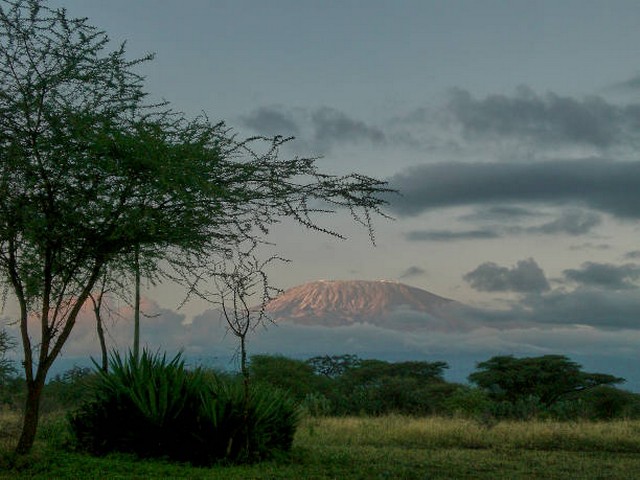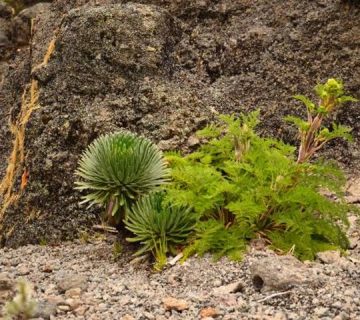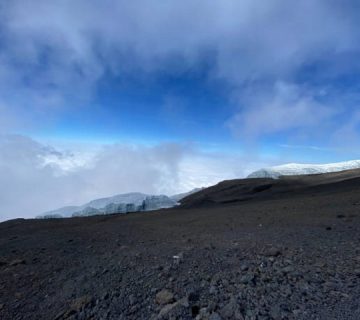Kilimanjaro Eco-Tours With An Educational Focus: A Life-Changing Journey
Standing as a beacon of natural beauty and ecological diversity, Mount Kilimanjaro is more than just the highest peak in Africa; it’s a vibrant classroom alive with lessons on ecology, geology, and the spirit of human endurance. At the Kilimanjaro Centre for Trekking and Ecotourism (KCTE), we specialize in providing eco-tours that do more than just take you to the summit; they enrich your mind and spirit. Join us as we delve into why an educational-focused eco-tour of Kilimanjaro might just be the most enlightening journey you’ll ever embark on.
Unlocking the Secrets of Kilimanjaro’s Unique Ecosystem
The Flora and Fauna Tapestry
Kilimanjaro is not only famous for its towering height but also for its unique ecological systems. As you ascend, you’ll traverse through five distinct climate zones—each offering its own lessons about adaptation and survival. From the lush rainforests that cloak the mountain’s base, teeming with vibrant birdlife and elusive monkeys, to the alpine desert that tests the resilience of life with its stark beauty, every step on this mountain uncovers new wonders.
Geological Wonders and Climate Insights
The geological history of Kilimanjaro is as dramatic as its landscapes. With KCTE, your trek becomes a hands-on lesson in volcanic activity and the forces that shaped the earth. You’ll learn about how the mountain was formed through volcanic activity and how its climate has changed over the years. This knowledge isn’t just academic; it’s a crucial insight into how climate change is impacting our planet’s natural wonders.
Cultural Immersion and Historical Context
The Chagga Tribe: Guardians of the Mountain
Kilimanjaro is not just a natural wonder but also a cultural heritage site, deeply rooted in the traditions of the Chagga people. Our eco-tours emphasize not only the ecological but also the anthropological significance of the region. By visiting Chagga villages and interacting with local communities, you not only gain insight into indigenous ways of life but also contribute to their economy, promoting sustainable tourism.
Historical Expeditions and Their Lessons
Every trail on Kilimanjaro is steeped in history. From the first recorded summit by Hans Meyer and Ludwig Purtscheller in 1889 to modern-day explorations, these paths are laden with tales of human aspiration and perseverance. Our guided tours provide you with these stories, offering lessons on the evolution of climbing techniques and the importance of sustainable practices in preserving this majestic mountain for future generations.
The Role of Sustainability in Mountain Exploration
Practicing Eco-Friendly Trekking
At KCTE, we believe in trekking responsibly. This is why our tours are designed to ensure minimal environmental impact. From utilizing solar energy in our camps to enforcing strict leave-no-trace policies, every aspect of our operations is crafted to preserve Kilimanjaro’s delicate ecosystems. By choosing us, you partake in a global movement towards sustainable travel, learning how responsible actions can help conserve the environment for future adventurers.
Empowering Local Communities Through Eco-Tourism
Sustainable tourism is incomplete without the empowerment of local communities. Our eco-tours are intertwined with community projects that support education, healthcare, and economic development. By booking your climb with KCTE, you’re directly contributing to these initiatives, making a positive impact on the lives of those who call Kilimanjaro home.
Educational Programs and Initiatives
Workshops and Seminars
Your journey to Kilimanjaro with KCTE is enriched with educational workshops that discuss everything from wildlife conservation to the effects of global warming on high-altitude ecosystems. These sessions are designed to transform your climbing experience into a profound learning opportunity, making every step you take a step towards greater environmental awareness.
Youth and Student Programs
We believe in nurturing the next generation of eco-conscious adventurers. KCTE offers special programs for youth and students, providing them with educational materials, guided tours, and interactive sessions that inspire a deep respect for nature and an understanding of ecological responsibility.
FAQs About Kilimanjaro Eco-Tours
Q1: What is the best time to book a Kilimanjaro eco-tour?
A1: The best times to visit Kilimanjaro are during the dry seasons, from June to October and from December to March. These periods offer the most favorable weather for climbing and wildlife viewing.
Q2: What should I bring on an eco-tour?
A2: Essential items include sturdy hiking boots, layered clothing adaptable to varying temperatures, a reusable water bottle, sun protection, and a camera to capture the breathtaking vistas. Don’t forget to bring an open mind ready to learn and explore!
Q3: How physically demanding are these tours?
A3: Climbing Kilimanjaro is a challenging endeavor that requires a good level of physical fitness. However, KCTE offers routes of varying difficulties, and our guides are skilled at providing a supportive, paced experience tailored to your fitness level.
Q4: How does KCTE support sustainability?
A4: KCTE integrates sustainability into every aspect of our tours, from employing local guides and supporting local economies to adhering to strict environmental policies that ensure the trails and habitats remain undisturbed.
Join Us for a Journey of Discovery
Climbing Kilimanjaro is more than just a physical challenge; it’s a journey into the heart of our planet’s amazing biodiversity and cultural heritage. With Kilimanjaro Centre for Trekking and Ecotourism (KCTE), you embark on a voyage that not only respects but revitalizes both you and the mountain environment.
Are you ready to transform your understanding of this monumental landscape? Book your educational-focused Kilimanjaro eco-tour with KCTE today and take the first step towards a truly enlightening adventure that extends far beyond the summit.




